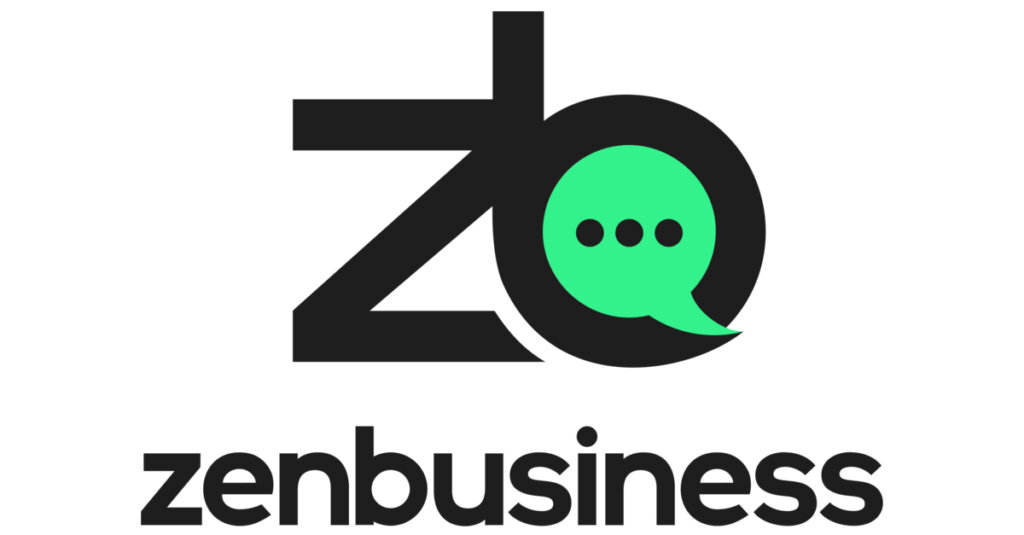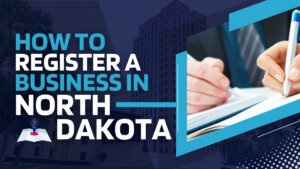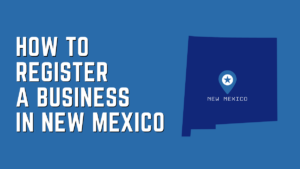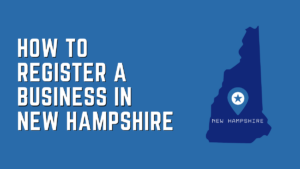If you’re interested in comprehending the importance of a DBA in Colorado and the process of officially registering it, you’ve found yourself in the correct location.
In Colorado, a DBA, otherwise known as “Doing Business As,” grants entrepreneurs the ability to utilize an alternative business name for various purposes, such as marketing, sales endeavors, and legal affairs.
In some states, this designation category may be referred to as a fictitious name or assumed name, trade name, or something similar by nature. Unlike a Limited Liability Company (LLC), a DBA does not signify a formal business entity nor provide equivalent advantages.
Opting to register an LLC in Colorado often proves more advantageous due to tax benefits and legal protections.
>> Use Business Rocket to File a DBA in Colorado >>
Do I Need a Colorado DBA Name?
If you plan on doing business in Colorado using a name that differs from your legal business name, you must register a trade name with the secretary of state. The Colorado Secretary of State mandates trade name registration for specific types of businesses that wish to operate under a different name than their legal business name.
- General partnerships
- Limited partnerships
- Sole proprietorships
- Limited liability companies (LLCs)
- Corporations
In the case of partnerships and sole proprietorships, the business name is simply the owner’s personal name. However, for LLCs and corporations, the legal business name is determined by what was officially filed with the secretary of state during their formation.
There are various motivations behind using a different name for your business other than its legal one. For instance, partners and sole proprietors may prefer a more professional-sounding assumed name rather than their own personal names.
By obtaining a DBA (Doing Business As), entrepreneurs without an LLC or corporation can establish a separate identity for their business, allowing them to open a bank account and enter into contracts using that specific business moniker instead of their own personal names.
If you own an LLC or corporation, consider registering a trade name for marketing and branding. You may be planning to introduce a new line of products or services that differ significantly from what your customers have come to expect from your business.
It’s crucial to avoid confusing customers about the offerings and avoid the need to create a separate legal entity for this new line. In such cases, obtaining a DBA name in Colorado could be suitable.
It’s essential to understand that a DBA name solely serves as an identification label and does not establish a legal entity. Legal entities, like LLCs in Colorado and corporations, offer personal asset protection by safeguarding owners’ personal belongings such as houses or cars, in case of lawsuits against the business.
In contrast, sole proprietors do not benefit from personal asset protection. Even obtaining a DBA (Doing Business As) offers no personal asset protection. If you’re a sole proprietor seeking limited liability, it’s advisable to establish a legal entity instead of acquiring a trade name.
Another aspect to remember is that Colorado has distinct regulations for nonprofits regarding the registration of trade names. Nonprofit organizations have the option but are not obligated to register any name they use for conducting business apart from their official business name.
>> Use Business Rocket to File a DBA in Colorado >>
Why Hire a Professional Service to File a DBA in Colorado?
Completing the process of filing a Doing Business As (DBA) in Colorado involves several steps, as briefly mentioned. It’s crucial to avoid any mistakes during these procedures, as they can lead to an application being rejected or more severe consequences.
If a name is misused in legal or business contexts, the state of Colorado has the authority to impose fines or even force the closure of your business. To navigate this complex procedure confidently, professional services are available to ease your concerns and uncertainties regarding DBA processes in Colorado.
These experts possess extensive knowledge of the state’s requirements and can assist you in selecting an ideal name before commencing any paperwork. These service providers not only cater to DBA needs but also offer assistance for LLCs and other entities, anticipating potential future expansion of your business.
Through meticulous research, we have identified the top professional LLC services that fulfill all your DBA requirements in Colorado:
>> Use Business Rocket to File a DBA >>
Step 1: Conduct a Colorado DBA Name Search
In Colorado, it’s possible to register a trade name that’s either similar to or the same as another name that’s already on record. However, performing a trade name search is still highly recommended to ensure availability before registering your own trade name.
A unique and easily distinguishable trade name will help ensure everything is clear. To conduct a trade name search, you can conveniently do so online. Simply visit the website of the Colorado Secretary of State and enter the desired name into their Name Availability Search tool.
Additionally, it would be wise to conduct a trademark search to determine if someone has already trademarked your chosen trade name. You can utilize TESS (Trademark Electronic Search System) to perform this search.
TESS checks registered trademarks and applications within the U.S. Patent and Trademark Office database. When selecting a trade name for your business, it’s essential to consider any restrictions that may apply.
Choosing a trade name that adheres to Colorado laws and regulations is necessary. For instance, avoid including vulgar language or references to illegal activities in your trade name.
Additionally, refrain from using words in your trade name that imply governmental affiliation, such as “State Department.” Unless you have registered the corresponding business entity with the secretary of state, do not use designators like “LLC,” “Inc.,” or any other entity indicator.
Lastly, unless your business provides financial services, avoid using terms like “bank,” “trust,” “credit union,” or “banker” in your trade name.
By following these guidelines and ensuring compliance with applicable laws and regulations when choosing a trade name for your business, you can establish a professional and appropriate brand identity.
>> Use Business Rocket to File a DBA >>
Step 2: Register a Colorado Trade Name
To successfully register a DBA (Doing Business As) in Colorado, you can do it online. The Colorado Secretary of State’s website provides various forms designed explicitly for registering trade names.
It’s crucial that you carefully choose the registration form that corresponds to your specific business entity type. For instance, if you’re a sole proprietor looking to register a trade name, selecting the “Statement of Trade Name of an Individual” form is the way to go.
While there may be slight variations in the Statement of Trade Name forms depending on your business type, there are certain key pieces of information that you will generally need to provide on your registration form:
- Business Type
- The true name of the business
- Address of the business
- Nature of the business
- Colorado Secretary of State ID number
To conduct business, you must furnish the trade name you currently utilize or intend to use. Additionally, a filing fee of $20 must be submitted to register your trade name.
Step 3 – Utilize Your DBA Name in Colorado
After finalizing the details of your Colorado DBA, it’s essential to promote your new business or the updated name of an existing business. When you officially adopt your DBA, it elevates your venture to a higher level of professionalism.
Regardless of whether the state of Colorado requires an official publication for your fictitious name, utilizing local newspapers is an effective way to announce your new name. Contact the county clerk’s office to understand any duration and content regulations you must adhere to.
Most newspapers are familiar with local publishing requirements and often offer templates for such advertisements. It’s your responsibility to provide your business’s legal name, the intended DBA name, and contact information for your company.
The costs associated with publication will vary based on frequency and county. Once terms have been agreed upon, confirm the dates your company will be featured in the paper and ensure accurate publication. If any information needs to be included or corrected, promptly notify the newspaper.
Step 4: Manage the DBA
Once you have completed the filing process for your Colorado DBA, you may have questions about renewing your trade name and other aspects related to managing it. Is it necessary to restore your trade name? Can modifications be made after submission? What are the implications if you no longer wish to use your trade name?
Renewals
A trade name is valid for one year for individuals who operate their businesses. However, it’s important to note that it expires on the first day following the month the initial filing took place unless renewed.
To illustrate this point further, let’s consider an example: if you registered your trade name on February 15th, 2020, its expiration date would be March 1st, 2021. In the case of sole proprietorships, there’s an opportunity to renew trade names within three months before their expiration date.
However, once this expiration date has passed without renewal, the trade name will no longer be eligible for renewal. For limited liability companies (LLCs) and corporations, the validity of their respective trade names depends on whether or not they maintain good standing.
If a company falls out of good standing status, the associated trade name will remain valid for one year from that particular date. However, it can still be reinstated during this period if the business owners bring the company back into good standing.
If business owners fail to restore good standing status before the one-year elapses, a renewal application may be submitted to regain the trade name.
Changes or Corrections
If, after submitting your trade name registration form, you realize that adjustments or revisions are necessary, there are options available to you. For instance, if you need to modify the address provided on the registration form or revise the description of your business activities, these changes can be made.
To make alterations to your trade name registration in Colorado, you must complete either the Statement of Change of Trade Name Information form or the Statement of Correction of Trade Name Information form.
Both forms can be accessed on the Colorado Secretary of State website. Along with submitting the appropriate form for your specific change or correction needs, a filing fee of $10 must also be included.
Withdrawals
If you wish to withdraw or terminate your trade name registration, you also have the option to do so. The Statement of Trade Name Withdrawal form can be found on the website of the Secretary of State.
A fee of $10 is required for withdrawing a trade name. Alternatively, you can let your trade name expire if it’s no longer needed.
Best DBA Filing Services to Register Fictitious Name in Colorado – CO DBA
Here are the top-notch services available for registering an imaginary name in Colorado.

When registering a Doing Business As (DBA) in Colorado, Business Rocket is an indispensable resource. This platform provides a seamless, user-friendly solution for entrepreneurs and business owners.
By offering intuitive online tools and step-by-step guidance, Business Rocket simplifies the complex paperwork involved in DBA registration in Colorado.
The primary goal of Business Rocket is to streamline the entire process by helping individuals navigate the legal requirements and ensuring that their chosen business name stands out while also complying with Colorado regulations.
With its document preparation and filing assistance features, Business Rocket facilitates a smooth DBA registration process, supporting individuals looking to establish their presence within the state.

Northwest Registered Agent is a trustworthy option for businesses seeking legal services, with a specialized focus on DBA filings in Colorado. As a registered agent, they fulfill the state’s requirement of providing a physical address in Colorado for businesses operating under an assumed name.
In addition to DBA filings, Northwest Registered Agent offers various compliance services. These include submitting annual reports and forwarding mail.
By taking this comprehensive approach, Northwest helps businesses maintain their good standing with the state and eases administrative responsibilities for business owners. This allows them to devote more attention to growing their enterprises.

ZenBusiness is a comprehensive platform for business services that offers support to entrepreneurs at every stage, including filing a DBA in Colorado.
With a focus on simplicity and affordability, ZenBusiness provides an easy-to-use online platform that guides users through all the necessary steps to register a DBA in the state. This service helps check the availability of names, prepares the required documents, and submits filings to the appropriate authorities in Colorado.
In addition, ZenBusiness provides ongoing assistance with compliance matters, making it a valuable resource for entrepreneurs who want to establish their business identity in the state hassle-free and by regulations.
Colorado DBA vs Colorado LLC
When deciding whether to go with a Colorado Doing Business As (DBA) or a Colorado Limited Liability Company (LLC), several factors align with your business’s specific needs and goals.
A Colorado DBA, also known as a trade name, allows businesses to operate under a different name than their legal entity name. This is ideal for sole proprietors or partnerships who want to do business under another name without forming a separate legal entity.
While using a DBA gives you flexibility in terms of branding, it doesn’t provide the personal liability protection that comes with establishing a distinct entity. Conversely, a Colorado LLC is a lawful entity that grants its owners, called members, limited liability protection.
This means that the member’s personal assets are typically safeguarded from any debts or obligations incurred by the business. LLCs are renowned for their flexibility in management structure and taxation, allowing them to adapt to meet the unique needs of any given company.
Choosing between a Colorado DBA and an LLC depends on several factors, including desired levels of personal liability protection, complexity of business structure, and future growth plans.
For small sole proprietorships, a DBA may be sufficient to meet their needs whereas businesses seeking increased protection and structure often opt for forming an LLC to take advantage of additional benefits.
Seeking advice from legal and financial experts can assist in making an informed decision explicitly tailored to your business’s circumstances.
>> Try Out Business Rocket to File a DBA in Colorado >>
File a DBA in Colorado – Frequently Asked Questions
Are you interested in understanding how to file a DBA in Colorado? Keep reading to discover the information you might be searching for.
Conclusion – File a DBA in Colorado
To summarize, individuals or businesses in Colorado must file a Doing Business As (DBA) if they wish to operate under a name different from their legal entity. Acquiring a DBA offers various advantages, including increased flexibility and branding opportunities, which allow businesses to establish a unique and marketable identity.
In addition to meeting the necessary legal obligations, obtaining a DBA in Colorado is relatively simple. It provides an affordable way to enhance brand recognition and facilitate business transactions.
By taking this crucial step, entrepreneurs can confidently navigate the business landscape in Colorado. They will ensure compliance with regulations while maximizing their potential for success.
>> Try Out Business Rocket to File a DBA >>
 Sections of this topic
Sections of this topic
















